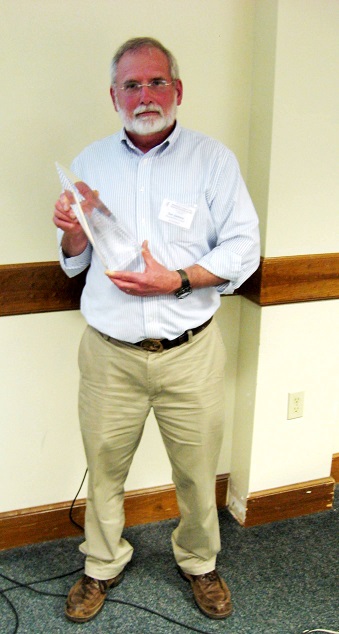Dr. Don Jackson Dr. Don Jackson has a career of over 25 years at Mississippi State University, invested into the fisheries of Mississippi, the south, the nation and the world. His work has primarily focused on river fisheries, but he also has many scientific contributions on lake, stream, estuarine and marine fisheries as well. He has left his mark not only on the fish, but also on the people. He has been an excellent mentor to many, is a philosopher on meaning, a sojourner to discover hidden truth, and a friend who helps one up to a place of greater vision and clearer perspective. Dr. Jackson informs others that a position in fisheries comes with great privilege and responsibility.Don's career has spoken for the fish and rivers. His work has spanned the conservation of numerous species. As an example of a few, his work has helped us to better understand paddlefish. His work has been instrumental in understanding the paddlefish populations that use the Tennessee-Tombigbee River system. Populations of the Ozark cave fish were also discovered and conserved due to his efforts. His work has also been important for understanding blue sucker in the rivers of the Mississippi Delta.
Don has been intimately involved in river fisheries. He has conducted a considerable amount of research around Mississippi on catfish. He can tell you all about behaviors, growth rates and population limitations of different populations and species of catfishes in Mississippi. He has taught fisheries science and fisheries management, limnology and a number of other courses that have served to educate scientists, managers and interested persons on the importance of managed and conserved fisheries. He is well respected by his peers. His role as national president of the American Fisheries Society attests. He has also worked extensively with the Mississippi Department of Wildlife, Fisheries and Parks, and with the Department of Marine Resources.
Don is also actively involved in educating his greater community. He has taken kids fishing, and been deeply involved in Boy Scouts. Don's voice is heard through his books as well. His love of the outdoors spills over into his writing. In his writing one can understand the essence of his drive.
Excerpt from "Wilder Ways" - "Beyond the Twilight":
"So what's the message here? Well, first of all there's the matter of understanding the interconnectedness that exists within and among the different ecosystems on earth. Everything is linked. When we lose parts of the whole, the whole has to do a reshuffle in order to keep on going. We don't really know, and might never know (until perhaps it is too late), what it takes to make the reshuffling something that's impossible to do. Second, we need to get past the thought of "What good is it?" Utility doesn't always have to equate with value. A cave does not really need to be commercialized in order to be valuable. Critters don't necessarily need to taste good to be considered important natural resources. Sometimes just "being" is enough value. That's somewhat easier to accept when the critter is something like a mockingbird that fills our days with song. But what about rare little fish.down deep in the earth.in places where most of us don't, won't or can't go? Do they matter? I really can't answer that question for anybody other than myself.
But here's something that is to me pretty sobering. This planet is the only place we have got to live. The more I engage science professionally and otherwise, the more I realize that I don't understand very much about the way life on this planet gets along. I increasingly feel like a water strider just scampering up on the surface of things. I have not and can not go very deep into the mechanism of things.as hard as I try. In fact, the deeper I try to go, the deeper the whole thing gets. At what point does it all fall apart.
God might care about us, and as a man of faith I believe that He does. But as a scientist, an ecologist, and a manager of natural resources, I can assure you that nature doesn't care at all. Little blind fish down in the earth might be there for a reason. If they go, what is the message from the earth? What is nature's message? Are we smart enough.wise enough. to listen?"
Don is a story teller, he captures deeper meaning with the charm of a tale sometimes in simple language that a child could understand, other times in ways that has the learned scratching their heads. He also has some steel in him. He has taken stances against powerful interest groups that have stood in the way of rivers. Flowing rivers. Healthy rivers and healthy fish. Many people groups that lack a voice loud enough to be heard through the layers and sometimes walls of bureaucracy. Don has spoken for these people. He has spoken in Malaysia through the Peace Corps. He has spoken in many countries where his expertise has been sought. He has spoken in Mississippi where rivers still flow. His research and legacy through his many graduate students will continue to speak. Don once said that in fisheries, and academia, our goal is to give ourselves away. Don has given himself away.

-
Chapter Info
-
Meetings & Archives
If
you have questions or suggestions concerning this site, please Dr.Kevin M
Hunt.
This page was last modified:
This page was last modified:
